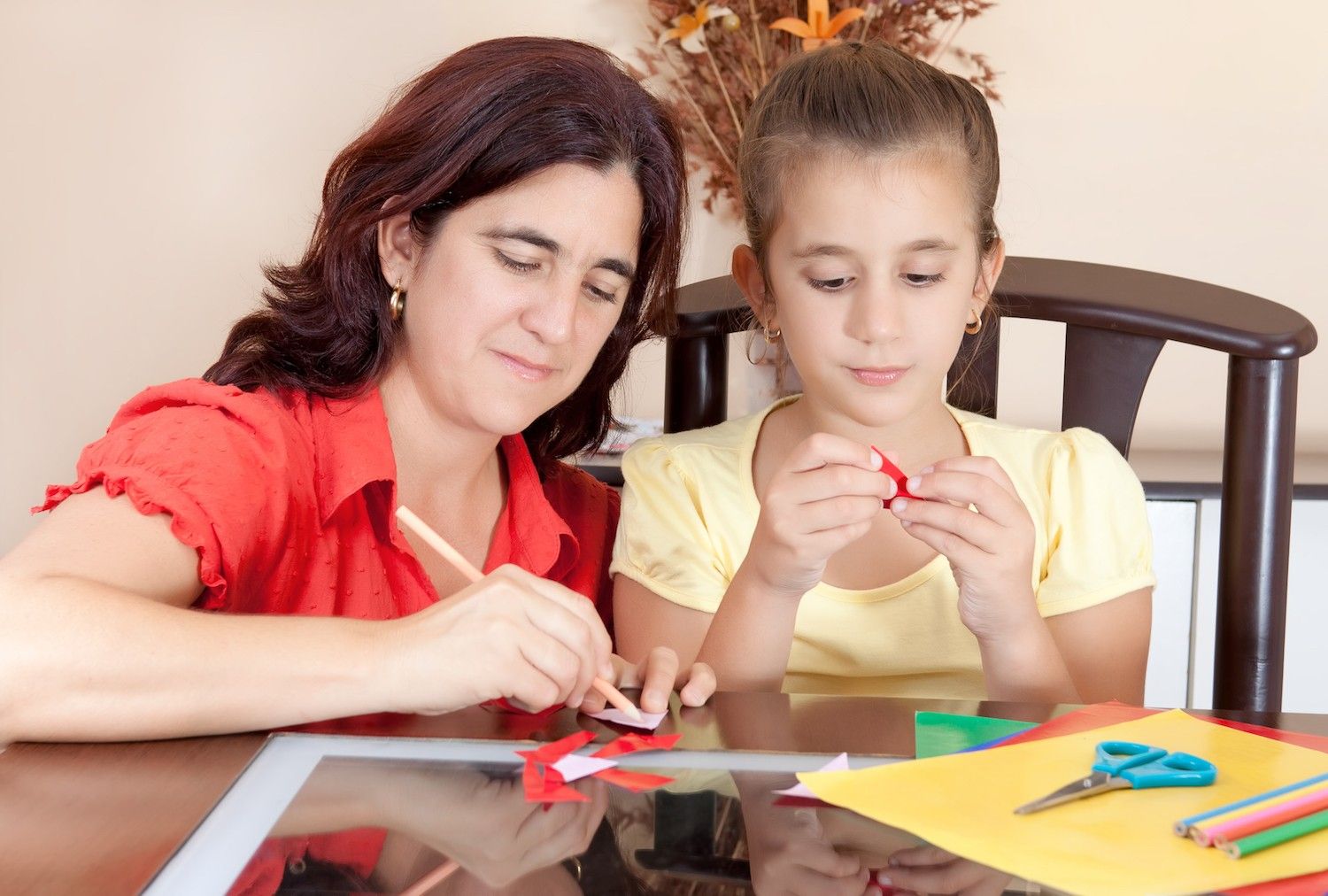Exploring Homeschooling: What, how, and why?
8 minute read, Written By: Momly
From Classroom to Livingroom: A Paradigm shift in learning
Once they are of school-going age, the rigmarole of the admission process, registering for the certain board, application forms and all the nitty-gritty of the formalities start. Shopping for school uniforms, school bags, bottles, and tiffin boxes are some of the items in the pile that children happily flaunt on the first day of school. With curiosity and beaminess in their bright eyes, they walk inside the school premises leaving the aching hearts of their parents behind.
Ah, schools are where the mighty little seeds called children are planted to bloom with intelligence and creativity. This formal institution that sprouts knowledge and discipline has always been a corridor where children launch their feet to become well-integrated individuals. Starting from zero to making them he/sheroes is, of course, goes without saying, the ultimate target for schools. However, over some time, this standard format of learning has shifted to step backward and follow the age-old mode of learning called Homeschooling. Earlier due to a lack of resources and scarcity of good institutions, children were homeschooled. Even if there were schools in the vicinity, the financial burden stopped parents from sending and they were forced to take up studies at home. Then with changing lifestyles and increases in incomes in the hands of people, the approach to learning started changing and children were sent to study in a formal setup. The struggle in the hinterland continued and poor and needy households felt challenged to afford this formal setup with no option other than homeschooling at their arm’s length. But now, even the rich and elite are taking up homeschooling and touting it as the best option to teach their children. The sudden resurgence of it makes us ponder the benefits and approach of it.

What is Homeschooling?
Homeschooling is schooling or educating your children at home by following the school’s syllabus and format of learning. Here, your children need not go to school but be at home and do their studies. Ideally, an instructor or parents themselves carry out their children’s studies. It is a study approach carried out right in the confines of the home rather than in a school environment.
Pros of Homeschooling:
Learning in the Comfort of Homes – Children find it relaxing in the confines of home and need not travel every day to school to learn and develop the skills. They can practice personalized study completely customized to their speed, learning style, and interests. This will increase their interest in the subjects they are learning as they will get more personalized attention in contrast to group learning in schools.
Safe environment – Parents can regulate the environment and stop the children from getting distracted or deviating from the prime focus. Also, home is the best inviolate space where children are offered a space to grow and progress.
Flexibility – As children are not traveling to school, they are not bound by the school’s rules. Parents get time to be flexible and tweak their children’s schedules as and when needed. They can periodically plan long trips and vacations with this homeschooling approach.
No commute means more extracurriculars – The to and fro commuting time is saved and as a result, parents can make use of that time to put their kids in extracurricular activities. This will give children who are interested in sports or fine arts an opportunity to double up their focus on their interests along with learning core subjects.

What are the Cons?
Reduced socializing – Schools give an opportunity to interact and socialize with other children. It helps children make more friends and come out of their comfort zone. Homeschooling prevents them from gaining friends and developing social skills. Schools also give them a platform to exhibit their interests and, in that process, children gain more confidence in their skills and passion. Homeschooling happens in isolation. Limited interaction with other children makes the children more introverted and reserved.
Lack of formal discipline – Lack of discipline and proper daily schedule of learning can lead to wavering attention and focus on studies. Children tend to deviate from the school subject learning path by going about in a leisurely fashion and concentrating more on extracurriculars. Some children do not listen to their parents as opposed to the teachers in a traditional setup of learning. This will create hindrances in their learning process. Also, when parents are homeschooling, it all depends on their time and routine tasks so a well-crafted educational approach practiced in schools would not be possible every day. This adds up to children meandering their focus on unproductive activities like watching TV, playing video games, etc.
School means qualified professionals – Homeschooling, if not done via a qualified tutor, comes into the hands of parents. Not all parents are qualified, skilled, or equipped with all the resources to supply credible knowledge to their children. Discrepancies in teaching will be counterproductive and wrong information will be passed to the young minds.
Which board to associate for taking up exams when homeschooling?
NIOS, referred to as the National Institute of Open Schooling, is the government’s educational board through which you can take examinations when you are homeschooling. It allows you to choose the subjects. Maths and science are not mandatory in this curriculum. Only languages are mandatory. It is the best option for homeschoolers in India.
Expert Views on Homeschooling:
Homeschooling Vs Traditional school setup
- Children develop a positive mindset as homeschooling provides parents a key to explore more positive values. Parents can focus on values like gratitude, kindness, etc
- Children who practice homeschooling are calmer and more emotionally regulated as compared to children learning in a formal setup.
- School learning doesn’t help achieve a connection between teachers and students, which could be established in homeschooling with more individualized attention.
- Homeschooling motivates the children to do better. The child feels that he/she is making progress. Gives them a chance to make mistakes learn from the mistakes and develop a good in-depth understanding of the subjects they are learning.

A Homeschooling guide for parents: What should be the approach?
- The child who is not able to concentrate in school should be prevented from the school learning approach for the first 3 years.
- School setup makes everyone fit into a said curriculum which in homeschooling can be avoided. Parents can tailor the concepts and subjects according to the interests of their children. For example, parents can take 2 chapters for the week
- Focus more on activity-based learning and DIY. It gives a hands-on experience to the children and makes them more aware of the concepts they are learning. Do at least one or two activities or project-based learning in a week.
- If you are teaching them about community, take them and help them engage with the community. Give them an experience of a community. Show them around the market, streets, malls, or supermarkets. Teach them the right vocabulary related to the community and place.
- After teaching the concepts, sit for 10 mins and interact with your children. Ask them what they understood about the concept and engage in deeper conversation around the topic.
- You can buy homeschooling calendars and mark the progress of learning.



